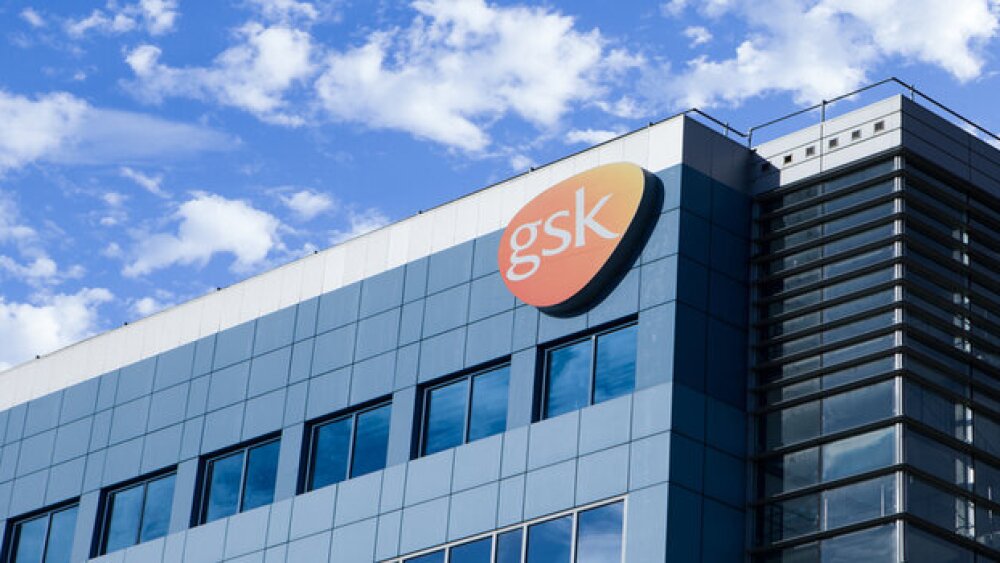The antibody-drug conjugate, in combination with Takeda’s Velcade and the steroid dexamethasone, reduced the risk of death and disease progression by 59% versus a similar Darzalex-based regimen.
Pictured: GSK’s headquarters in Poznan, Poland/iStock, Wirestock
GSK on Monday posted findings from an interim analysis of the Phase III DREAMM-7 trial showing that its antibody-drug conjugate Blenrep (belantamab mafodotin), when used in a three-drug regimen, led to a significant improvement in progression-free survival in patients with relapsed or refractory multiple myeloma.
DREAMM-7, an open-label, randomized and head-to-head study, combined Blenrep with Takeda’s Velcade (bortezomib) and dexamethasone (BorDex) and compared it against J&J’s Darzalex (daratumumab) plus BorDex. Results showed that the Blenrep regimen reduced the risk of disease progression or death by 59% versus the Darzalex-based combo, an effect that was highly statistically significant, according to GSK’s announcement.
At a median follow-up of 28.2 months, progression-free survival (PFS) in the Blenrep arm was 36.6 months, which was nearly three times the 13.4-month PFS in the comparator arm.
GSK will present these data at the 2024 meeting of the American Society of Clinical Oncology Plenary Series on Tuesday.
Hesham Abdullah, senior vice president and global head of Oncology R&D at GSK, said in a statement that Blenrep’s PFS benefits in DREAMM-7 “reinforce our belief in the potential for belantamab mafodotin … to redefine the treatment of multiple myeloma at or after first relapse.” The company said it will share these data with global health regulatory authorities.
In addition to PFS, DREAMM-7 is designed to assess the overall survival (OS) outcomes of treatment with the Blenrep regimen. At the time of the interim analysis, the Blenrep-based combo elicited a “strong and clinically meaningful” trend in improving OS by reducing the risk of death by 43% relative to the Darzalex arm.
However, this OS effect “has not yet reached the interim criteria for statistical significance,” according to GSK. The OS p-value was 0.00049, but the criteria for meeting statistical significance was a p-value of at most 0.00037. GSK said it will continue to follow DREAMM-7 for OS analysis.
In terms of safety, the study documented several eye-related side effects, which is a known risk of Blenrep treatment. Overall, 34% of patients in the Blenrep group developed grade 3 or higher ocular adverse events, including blurred vision, dry eye, eye irritation and visual impairment. Most were generally reversible and manageable with dose changes. GSK noted that 9% of patients dropped out due to eye-related side effects.
Monday’s readout could set Blenrep up for a return to the U.S. market. In August 2020, the antibody-drug conjugate won accelerated approval from the FDA for the treatment of relapsed or refractory multiple myeloma in adults who had been exposed to at least four prior lines of treatment.
However, in November 2022, Blenrep missed the primary endpoint in its confirmatory Phase III DREAMM-3 study, failing to significantly outperform pomalidomide plus dexamethasone in terms of PFS. GSK took Blenrep off the U.S. market a few weeks later, following a request from the FDA.
Tristan Manalac is an independent science writer based in Metro Manila, Philippines. Reach out to him on LinkedIn or email him at tristan@tristanmanalac.com or tristan.manalac@biospace.com.






